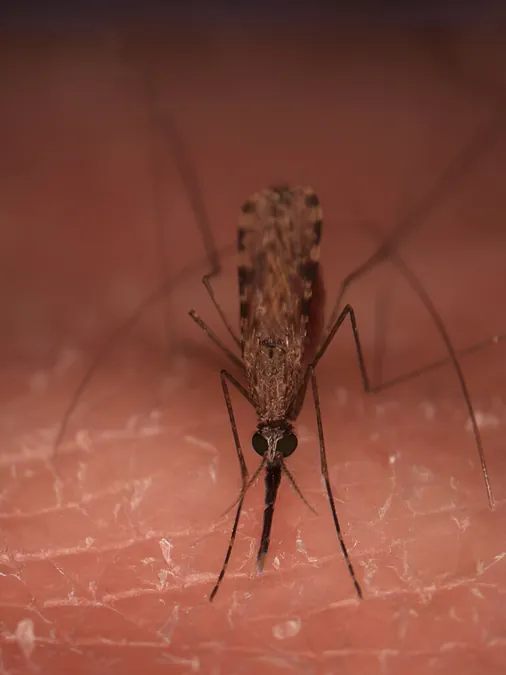
Climate Change: A Deadly Duo for Mosquitoes - Aging and Warmer Temperatures Fuel Mortality and Disease Spread!
2024-09-27
Introduction
In a startling revelation, recent research has shown that climate change is not only affecting ecological systems but also accelerating the aging and mortality rates in mosquitoes, thus heightening the risks of diseases they spread. As temperatures rise, these little creatures face a brutal one-two punch that shortens their lifespans and intensifies disease transmission.
Research Overview
The study, aptly titled "Warmer environmental temperature accelerates aging in mosquitoes, decreasing longevity and worsening infection outcomes," was published in the peer-reviewed journal Immunity & Ageing in September 2024. Led by graduate student Jordyn Barr at a prominent research institution, the team included esteemed Professor of Biological Sciences Julián Hillyer and talented lab members Lindsay Martin and Ann Tate. Their groundbreaking work shed light on how increased temperatures are rewriting the life stories of mosquitoes.
Key Findings
The findings are alarming: mosquitoes infected with bacteria have significantly shorter lifespans compared to their uninfected counterparts. What's even more concerning? Those living in warmer conditions saw their survival rates plummet. The research revealed that once temperatures exceed 27°C (approximately 80°F), the risk of mosquito mortality skyrockets by an astonishing 40% for each additional degree. This means that, in a rapidly warming world, conditions once deemed favorable for survival can quickly turn lethal.
Laboratory Observations
Barr explained, "In our lab, we initially tested at 33°C, and it was almost impossible for mosquitoes to live past 10 days. Even at 32°C, we struggled to keep enough mosquitoes alive long enough to study them at 15 days." This illustrates the harsh reality that mosquitoes are not just victims of their environment; they are rapidly succumbing to it.
Previous Research
Previous investigations from the Hillyer lab suggested that higher temperatures cause accelerated aging in mosquitoes, weakening their immune systems. However, those earlier studies didn't link this weakened immunity to a direct increase in mortality or more severe infection outcomes. The current research meticulously explores this connection, revealing that the compounded effects of aging, infection, and warm climates together create a perfect storm for mosquito populations.
Distinctive Biological Responses
Notably, the study also drew a crucial distinction: while mammals use metabolic processes to regulate their body temperatures, mosquitoes do not. As such, they experience accelerated aging in direct response to elevated temperatures, leading to increased mortality and stronger infections.
Conclusions
As Professor Hillyer pointed out, "This paper highlights that the combination of warmer temperatures and aging increases mosquito mortality and infection severity, each factor amplifying the other." The implications are profound—this research underscores the urgent need to address climate change, as its effects extend beyond mere temperatures and into the realm of public health.
Implications for Public Health
In a world increasingly threatened by vector-borne diseases like malaria, dengue fever, and Zika virus, understanding how climate change influences mosquito biology could be essential for future disease control strategies. As these tiny yet formidable pests evolve alongside a warming environment, humanity must grapple with the unpredictable consequences posed by rising temperatures—potentially altering the roles of mosquitoes as both pollinators and disease carriers.
Final Thoughts
Stay informed, folks; this is just the beginning of grappling with the impact of our changing world!






 Brasil (PT)
Brasil (PT)
 Canada (EN)
Canada (EN)
 Chile (ES)
Chile (ES)
 España (ES)
España (ES)
 France (FR)
France (FR)
 Hong Kong (EN)
Hong Kong (EN)
 Italia (IT)
Italia (IT)
 日本 (JA)
日本 (JA)
 Magyarország (HU)
Magyarország (HU)
 Norge (NO)
Norge (NO)
 Polska (PL)
Polska (PL)
 Schweiz (DE)
Schweiz (DE)
 Singapore (EN)
Singapore (EN)
 Sverige (SV)
Sverige (SV)
 Suomi (FI)
Suomi (FI)
 Türkiye (TR)
Türkiye (TR)